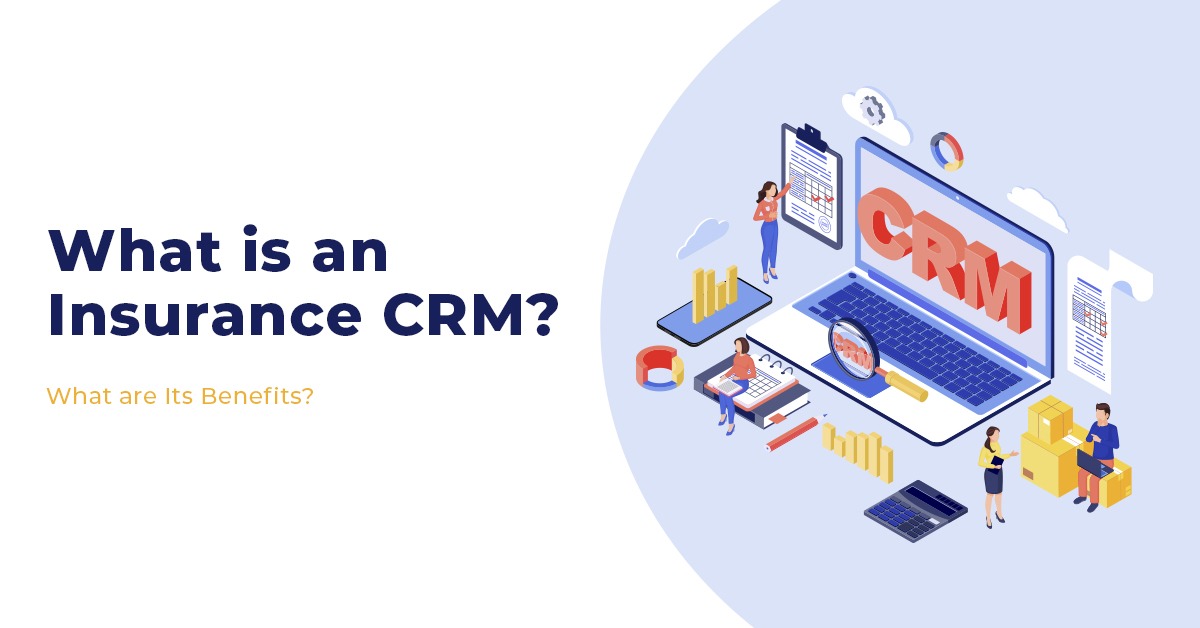What is an Insurance CRM? What are Its Benefits?

Imagine just sitting there, drinking your coffee and waiting for leads to pop up. And imagine what you can do with a trusty assistant that’s guaranteed to make no errors.
This is what automation technologies, like insurance CRMs, can do for you and it’s not only that. CRMs are widely used in the insurance industry for their benefits: better management trail, increased market competence, improved customer experience and claims resolutions, among others.
With a CRM, there are more possibilities to explore and more ways to recreate how your business engages with leads and close deals successful every month.
What you should know:
Insurance CRMs are a type of software that lets users store and process information and automate workflows to serve the needs of the insurance sector.
They let you provide a personal touch to your messages and send targeted emails that are tailored to your customers’ needs and preferences.
In 2020, CRMs for banking, financial services, and insurance (BFSI) are estimated to be worth $12.86 billion globally. It is forecast to grow to $24.42 billion by 2027.
It’s important for insurance companies to provide online channels and innovative, more convenient ways for their customers to reach out to them. This is because 44% of insurance holders claim that they would switch companies if their preferred means of communication is not available when escalating claims.
So let’s discuss what an insurance CRM basically does:
What is an Insurance CRM?
Insurance CRMs are a type of software that allows users to process huge amounts of information and create seamless workflows that fit the needs of the insurance sector. They are commonly designed to do the following functions:
Provide users with an accessible repository of data for lead engagement and client onboarding
Insurance agents often need to access specific information with the use of notes and spreadsheets to engage leads. Sometimes, they would have to open each file from different apps, bring out papers, download files from clouds, etc. This can get messy and this, overall, takes so much time and effort.
With an insurance CRM, all insurance policies and contact information can be stored in a centralized platform. This rids you of the hassle of having to manually pull up information from different files, folders, and computers.
This allows insurance agents to get the information they need right away. Plus, they won’t have to worry about getting the wrong data as the CRM updates it in real-time when new data is typed in.
Overall, CRMs help agents manage all legal documents and regulatory procedures they have to keep and perform. The system will allow them to store important documents in an organized manner and with files ready to access.
To find out how to gather a detailed description of your target audience, check this article: Customer Profiling with the Use of Saphyte Forms
Allow users to provide more personalized services to clients
Sending monotonous and robotic email marketing campaigns can absolutely be a huge turnoff. That’s why it’s needed for businesses, such as insurance companies, to personalize their approach to your clients.
Including a personal touch to your messages is what most customers want nowadays. With a CRM, there’s going to be easy access to needed information which is what will allow you to send targeted emails that are tailored to your customers’ needs and preferences.
Eventually, this sets you apart from your competitors— despite having other companies selling the same thing and providing the same service as you do, your customers will now have a big reason to choose and trust you. Remember, trust is a huge factor in a potential customer’s buying decision and is something insurance companies should always aim to achieve.
Find out how digital ecosystems grant you a competitive edge:
Enhance the overall customer experience
Consumers have now become well-versed in the versatility that communication technologies provide. Gone are the days of snail mail, faxes, or even phone calls. Consumers now have become used to the convenience and speed in transacting with businesses, which causes them to now have higher standards when it comes to customer service and support.
What insurance CRMs do is allow users to easily sort out the tickets based on their type and their priority. It lets them focus on each customer’s welfare and track the progress of each resolution. When claims are resolved quickly, it helps improve the overall customer experience and satisfaction, encouraging them to stay as customers or even recommend your business to others. These would ultimately help increase your sales.
For further readings, check out: How Insurance Companies Speed Up Work with Sales Management CRM.
Predict what clients would need next
An insurance CRM can simplify your complex data systems. It lets you track clients’ needs and preferences in every step of the sales process. This enables your sales team to spot opportunities to sell, cross-sell, and upsell.
In insurance, data tracking empowers your sales team to predict what your client would want next after buying his first insurance policy. For example, after knowing that they moved into a different home, your client might need house insurance. Or a car insurance after their first car purchase.
With a CRM, your sales team can provide value to your clients by matching the best products and services you offer with that of your client’s needs and priorities.
Take a Step Further. Go Digital.
Find out how you can improve your sales and marketing processes with an insurance CRM by getting started here.
Book a Demo